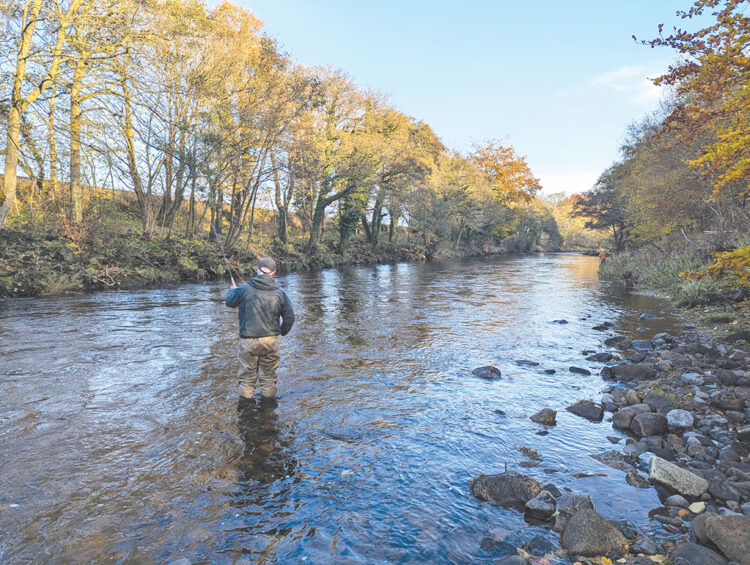THE chap in the car park did not inspire confidence.
He had fished all morning to no avail.
“I haven’t touched or seen a fish, nor has anyone else,” he said, as I turned up for a salmon fishing session.
That knocked my confidence as I set the rod up. A glance downstream off the bridge over the River Wear revealed that the top pool a hundred yards downstream was free of any anglers.
I wandered along the riverside path, only to find the pool was being fished from the opposite bank by an angler tucked under the trees.
With an emphatic thumbs down he indicated that he was calling it a day, and I was welcome to fish down the pool.
The fly was flicked onto the water as I pulled line from the reel to prepare a longer cast. Before I had the chance, the line tightened and a salmon of over 10lb bent the rod over.
The surprise of the angler across the river was matched only by my own. After a ten minute tussle the fish was landed and returned.
That’s salmon fishing. It’s hit or miss. It was the bright spot of my season. For much of the rest of it, others were catching and not me.
On one occasion I was wading across the river when fish were hooked by anglers upstream and downstream of me. I blanked that day, as on many occasions this season.
Salmon fishing has never been a consistent or predictable branch of angling.
But it’s getting tougher. Fish numbers are down. There were spells this season where a good run of fish moved upstream and sport was briefly lively.
Days of struggle followed, and even those who caught several more fish than I did agreed that the best seasons are behind us.
My season ended sharing a pool with a couple of eager youngsters being supervised by an adult.
If they are to enjoy salmon fishing in the future, these fine fish have to be protected, to give numbers a chance to recover.
This has been recognised and the Environment Agency is taking some action. They plan to tackle water pollution, address barriers to migration to improve fish passage – such as at Stockton on the Tees – and improve habitat.
That’s all well and good, but one of the other major issues, perhaps the major issue, is predation, especially by fish eating birds.
Cormorant numbers in the UK have gone from around 2,000 birds in the 1980s to an overwintering population of 62,000 now. They were historically controlled but are now protected.
Goosanders first colonised Scotland 150 years ago, and have vastly increased in number and range including in the North of England.
As predation of salmon parr and smolts has been identified as a major reason of decline, the issue needs to be addressed.
Yet it is a subject that tends to be ignored because of its sensitivity. But the decline in salmon numbers cannot be reversed if key issues are swept under the carpet.
I do not know the answer, and am not suggesting that culling is the way to go. but unless the issue of predation is openly discussed, salmon decline may well continue.
Anglers are naturalists. One of the joys of fishing is being surrounded by nature, and many anglers are keen birdwatchers. We have one common aim which is to have a balanced and thriving natural environment.
Humans have gone from being apex predators, to protectors of our countryside. Thankfully the days of otter hunting and mass shooting or trapping of any creatures that interfere with our way of life, are long gone.
But that can lead to an imbalance in nature.
However, maybe there are measures that can be taken. There are plans for example, to re-introduce white tailed sea eagles to parts of the North.
You may think that the least thing declining fish populations need is another predator.
But these eagles have been studied in Europe, and found to eat cormorant eggs and young, and scare adult cormorants from their nests exposing eggs and young birds to crows and gulls.
So top predators can restore balance that has been distorted by our changing behaviour.
It may be hard to imagine these magnificent birds of prey in our skies again, but not long ago the same could be said about the red kite, yet they are now thriving.
It’s something to think about while we to cast a line on the Tees for winter chub and grayling.






